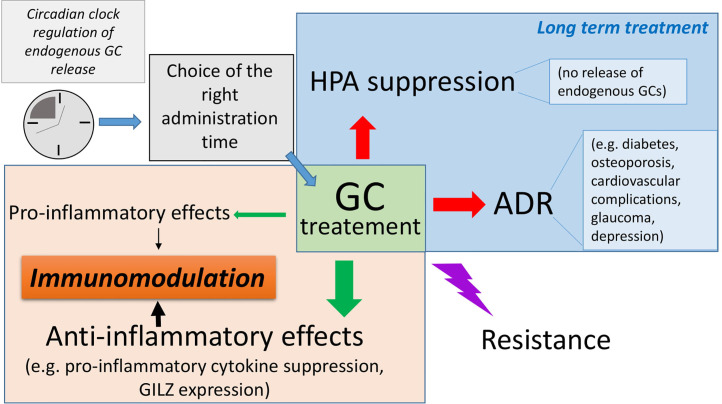Figure 1.
Complex regulation of glucocorticoid (GC) activity during pharmacological administration: GCs exert immunomodulatory activities, both by transactivating anti-inflammatory proteins such as glucocorticoid-induced leucine zipper (GILZ) and transrepressing pro-inflammatory genes, such as those encoding for pro-inflammatory cytokines, and therefore exerting powerful anti-inflammatory and immunosuppressive effects. They can also favor inflammation, e.g., by induction of inflammasome. Importantly, long-term GC treatment causes undesired adverse drug reactions (ADR), which can often result in severe pathologies such as diabetes, osteoporosis, and metabolic disorders. The hypothalamic–pituitary–adrenal (HPA) axis is inevitably suppressed after long-term treatment, thus indicating the use of dose-escalating regimens to avoid life-threatening consequences. The occurrence of resistance to GC efficacy can further complicate the management of autoimmune and inflammatory diseases, especially for diseases whose treatments other than GCs are not available.

